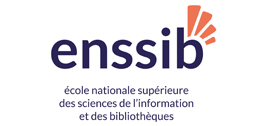Cliometrics and complexity

- advance research in the domain of Cliometrics by using dynamic modeling and complex systems analysis;
- highlight the benefits of their application for policy making;
- build a network promoting synergy between different disciplines such as Cliometrics, Econometrics, Physics, Mathematics, and Biology.
We are very pleased to announce the creation of the Team “Cliometrics and Complexity” (CAC) hosted by IXXI – ENS Lyon, the Complex Systems Institute in Rhône-Alpes (ixxi.fr). The IXXI “Complex System Institute” has already a practice of interdisciplinary collaboration in the modeling of complex systems since it hosts several research fields, currently Mathematics, Computer sciences, Biology and Physics.
CAC is not intended to be a Lab but a research project within IXXI – ENS Lyon, aiming at bringing together complex systems modeling and the new discipline of Cliometrics, which aims at modeling long historical macroeconomic and financial data. More specifically, our main goal is to stimulate new approaches to Economic History by drawing inspiration from other disciplines, notably complex systems modeling in Biology, Mathematics and Physics.
We think that the methodological exchanges between different academic fields are fundamentally beneficial for a renewed understanding of the underlying dynamics of historical and social systems and will enrich our knowledge of the past. The recent burst in the study of non-linear dynamics has led to a significant number of innovative approaches attempting to explain observed deviations from normality.
The idea is that chaotic processes on financial and real markets emphasize the need of reconsidering the conventional economic and financial analysis. The amalgam of persistent endogenous changes, due to the heterogeneous nature of economic agents’ beliefs, and high levels of exogenous noise seems to address adequately the occurrence of complicated dynamics, such as cycles or even chaotic fluctuations, in modern economies. In this line, attempting an interdisciplinary investigation of potential synergies between Economic History and the modeling of complex systems is the challenge that we want to raise: indeed, real world processes are highly complex, noisy, non-stationary and associated to non-linear phenomena. Nevertheless, many linear and classical methods in statistics and time series analysis require normally distributed and stationary data.
Among the tools that can help to deal with more complex historical data, recurrence analysis, for example (originally employed in non-linear physics, time-series analysis, physiology and neurosciences) is a powerful multipurpose approach for studying non-stationary variables, employing the fundamental property of recurrence in dynamical systems. The presence of recurrences is crucial in Economic History but too rare are the attempts in the literature to apply the relevant methodological tools of Recurrence plots (RP) and recurrence quantification analysis (RQA) to historical time series. Hopefully, CAC would like to start filling this gap. Additional relevant research axes are of special interest for CAC:
- Complex Systems and Invariant Measures: Feedback, path-dependency, connectivity, concentration, degree, betweenness, bifurcation, correlation dimension, Lyapunov exponent
- Complex Networks: Network structure, complex dynamics, stability/instability examination, percolation, scale-free and small-world networks
- Quantifying Financial/Economic Complexity, Uncertainty: Measures of criticality, power-law, random matrix theory, information theory, econophysics, rescale-range analysis, out-of-equilibrium dynamics, agents’ heterogeneity, nonlinear trading rules, knightian uncertainty.
- Nonlinear Techniques, Causality, Contagion: Copulas, Granger causality, direct causality, neglected nonlinearity methods, transfer entropy, dynamic correlation, univariate and cross-recurrence plots.
In the effort to communicate the joint research activity of the Team CAC and encourage original and interdisciplinary papers in the field of Economic History in collaboration with other researchers using complex systems modeling (for instance, mathematicians, physicists, biologists, econo-physicists), a seminar will be held twice a year and an international conference will be held every 2 years under the auspices of IXXI at the ENS Lyon. The first seminar took place 27 November 2015, and the first international conference will take place 9-10 June 2016. You will be kept informed of its organization. Sincerely Pablo JENSEN (Director of IXXI – Complex System Institute, ENS Lyon, Research Professor CNRS – Physics) Antoine PARENT (Director/Coordinator of CAC, Professor of Economics, Sciences Po Lyon, LET) Catherine KYRTSOU (Deputy Director of CAC, Professor of MacroFinance and Quantitative Methods, University of Macedonia) Fredj JAWADI (Deputy Director of CAC, Associate Professor of Economics, University of Evry).
Membership list
- Antoine PARENT, Professor of Economics - Director of CAC
Sciences Po Lyon, LET CNRS 5593 - antoine.parent@sciencespo-lyon.fr / http://www.laet.science/PARENT-Antoine
- Catherine KYRTSOU, Professor of MacroFinance - Deputy Director of CAC
IXXI-ENS Lyon, Universities of Macedonia, of Paris 10 & of Strasbourg - ckyrtsou@uom.gr / http://catherinekyrtsou.wordpress.com
- Pablo JENSEN, Research Director
CNRS, IXXI-ENS Lyon - Pablo.jensen@ens-lyon.fr / http://perso.ens-lyon.fr/pablo.jensen/
- Pierre BORGNAT, Research Fellow
CNRS, IXXI-ENS Lyon - pierre.borgnat@ens-lyon.fr / http://perso.ens-lyon.fr/pierre.borgnat/
- Fredj JAWADI, Associate Professor of Economics, Deputy Director of CAC
IXXI-ENS Lyon, Université d’Evry - fredj.jawadi@univ-evry.fr / https://sites.google.com/site/wwwfredjjawadicom/
Members of CAC:
- Panos ARGYRAKIS (Professor, Aristotle University, Department of Physics), panos@physics.auth.gr, http://kelifos.physics.auth.gr/MEMBERS/argyrakis.html
-
Cécile BASTIDON (LEAD (EA 3163) - Université de Toulon, Campus Porte d’Italie), bastidon@univ-tln.fr
- Murilo BAPTISTA (Senior Lecturer, Institute for Complex Systems and Mathematical Biology, King’s College, University of Aberdeen), murilo.baptista@abdn.ac.uk, http://www.abdn.ac.uk/icsmb/people/details/murilo.baptista
- Patrick CROWLEY (Professor of Economics, Economics and Decision Sciences Department, Texas A&M University), patrick.crowley@tamucc.edu, http://www.patrickmcrowley.com/
- Olivier DAMETTE (Université de Lorraine, BETA CNRS, Associate Professor of Economics), olivier.damette@univ-lorraine.fr, https://ideas.repec.org/f/pda315.html
- Simone GIANNERINI (Assistant Professor, Department of Statistical Sciences, University of Bologna), simone.giannerini@unibo.it, http://www2.stat.unibo.it/giannerini/default.htm
- Jesus GONZALEZ – FELIU (Ecole des Mines de Saint-Etienne, Assistant Professor in Computational Science and Signal Processing), jesus.gonzalez-feliu@emse.fr; http://scholar.google.fr/citations?user=37LQMY8AAAAJ&hl=fr
- Olivier GUILLOT (Université de Lorraine, BETA, CNRS Researcher in Economics), olivier.guillot@univ-lorraine.fr, http://www.beta-umr7522.fr/-GUILLOT-Olivier
- Tae-Hwy LEE (Professor of Economics, Department of Economics, University of California, Riverside), taelee@ucr.edu, http://faculty.ucr.edu/~taelee/
-
Antoine LE RICHE (Associate Researcher GAINS GREQAM-AMSE, CTER, Université du Maine), antoine.le_riche@univ-lemans.fr
-
Stéphane LOISEL (Professeur des Universités, ISFA, Université Lyon 1), stephane.loisel@univ-lyon1.fr, http://isfaserveur.univ-lyon1.fr/%7Estephane.loisel/
- Brian LUCEY (Professor in Finance, School of Business Studies, Trinity College, College Green, Dublin, Ireland), Brian.Lucey@tcd.ie, http://people.tcd.ie/Profile?Username=blucey
- Francesco MAGRIS (Université de Tours, LEO CNRS, Professor of Economics), francesco.magris@univ-tours.fr, https://ideas.repec.org/f/pma925.html
- Anastasios G. MALLIARIS (Professor of Finance, Loyola University Chicago), tmallia@luc.edu, http://www.luc.edu/quinlan/faculty/agtassosmalliaris.shtml
- Rosario MANTEGNA (Professor, Center for Network Science and Department of Economics, Central European University, Hungary), rn.mantegna@gmail.com, https://economics.ceu.hu/profiles/faculty/rosario-n_mantegna
- Samuel MAVEYRAUD (Université de Bordeaux, GhRETA CNRS, Associate Professor of Economics), samuel.maveyraud@u-bordeaux.fr http://gretha.u-bordeaux4.fr/fr/members/maveyraud-tricoire-samuel
- Alex MAYNARD (Associate Professor, Department of Economics, University of Guelph), maynarda@uoguelph.ca, http://www.amaynard.ca/
- Maxime MERLI (Université de Strasbourg, LARGE, EM Strasbourg, Professor of Behavioral Finance), merli@unistra.fr, http://www.em-strasbourg.eu/recherche/nos-enseignants-chercheurs/maxime-merli–5658.kjsp
- Alexandru MINEA (Université d’Auvergne, CERDI, Professor of Economics), alexandru.minea@udamail.fr, https://ideas.repec.org/f/pmi317.html
- Bruce MIZRACH (Professor of Economics, Department of Economics, Rutgers University), mizrach@econ.rutgers.edu, http://snde.rutgers.edu/
- Nicolas OVTRACHT (Université de Lyon 2, LET CNRS, Research Engineer in Geographical Information System), Nicolas.ovtracht@let.ish-lyon.cnrs.fr
- Georgios PAPAIOANNOU (Researcher in Complex Systems, Director of the Research, Technology And Development Department, Independent Power Transmission Operator), g.papaioannou@admie.gr
- Zbigniew STRUZIK (Professor, Graduate School of Education, The University of Tokyo, Japan), z.r.struzik@p.u-tokyo.ac.jp, http://www.p.u-tokyo.ac.jp/~zbyszek/zrs/Welcome.html
- Athanasios YANNAKOPOULOS (Professor of Applied Stochastic Analysis, Department of Statistics, Athens University of Economics and Business), ayannaco@aueb.gr, http://www.aueb.gr/pages_en/faculty/faculty_en_short.php?facid=1073
- Wing-Keung WONG (Professor of Economics, Hong Kong Baptist University), awong@hkbu.edu.hk, http://staffweb.hkbu.edu.hk/awong/
PhD Students:
- Cécile EDLINGER (Université de Lorraine, BETA CNRS, PhD Student in Cliometrics), cecile.edlinger@univ-lorraine.fr
- Kué Gilles GABA (LSAF ISFA, Université Lyon 1), kgaba@externativ.com, http://www.kue-gilles-gaba.fr/
- Pierre LEVIAUX (LET CNRS, Université Lyon 2, PhD Student in Cliometrics), pierre.leviaux@let.ish-lyon.cnrs.fr
- Christina MIKROPOULOU (University of Macedonia, PhD Student in Economics), cmikro@uom.gr










